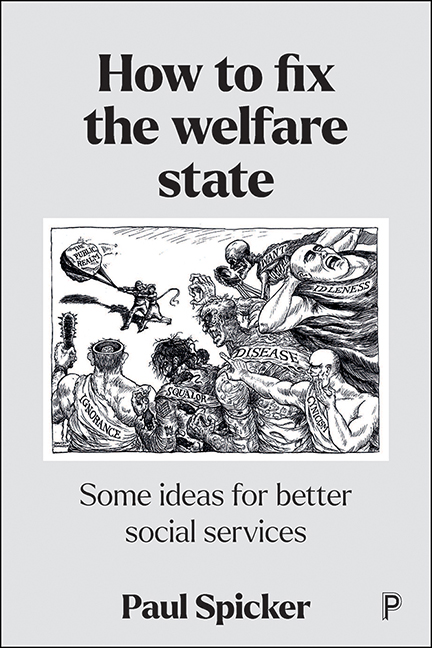Book contents
Summary
Housing is fundamental to people's welfare. First, it is something that is essential in its own right: people need shelter, warmth and space, as well as somewhere to have and do many of the other things – food preparation, personal hygiene, domestic entertainments – that are basic to well-being. Second, housing is still central to the way that most people relate to other people – making contact, interacting, sharing time, taking part in society. This role may have reduced with modern communications, but location – where the house is – still carries much more weight in valuation than the facilities that the house offers. Third, housing is the foundation for contact with other welfare services – education, health, indeed anything that depends on personal, face-to-face interactions – all organised around the place where people live.
Housing was a central element in the post-war welfare state. It had previously been closely identified with public health and slum clearance. ‘Squalor’ was one of the Five Giants that Beveridge had said needed to be slain. After the Second World War, housing remained a major political priority for both the main parties. What is surprising is not that housing used to be seen as a major source of welfare, but that it stopped being seen in that way. Governments came to think that it was not their business.
Housing tenure
It has been conventional, for many years, to discuss the housing system in terms of tenure: who owns the housing, and how it is paid for.
The growth of owner-occupation has been the biggest change, though it attracts less attention. At its peak, owner-occupation grew to nearly 70% of all housing; that has fallen back in recent years, reflecting the loss of resources many people have suffered through Britain's financial mismanagement and ‘austerity’, but most housing is owned, or is being bought, by the people who live in it.
Social housing – a general term covering both council housing, and the voluntary housing associations – developed mainly after 1919. Two million council houses were built between the wars, another four million in the post-war period. Council housing was initially intended as housing for the ‘working classes’; in the 1930s, it primary role was the replacement of slums, and that meant it has always been associated to some extent with deprivation.
- Type
- Chapter
- Information
- How to Fix the Welfare StateSome Ideas for Better Social Services, pp. 80 - 93Publisher: Bristol University PressPrint publication year: 2022



